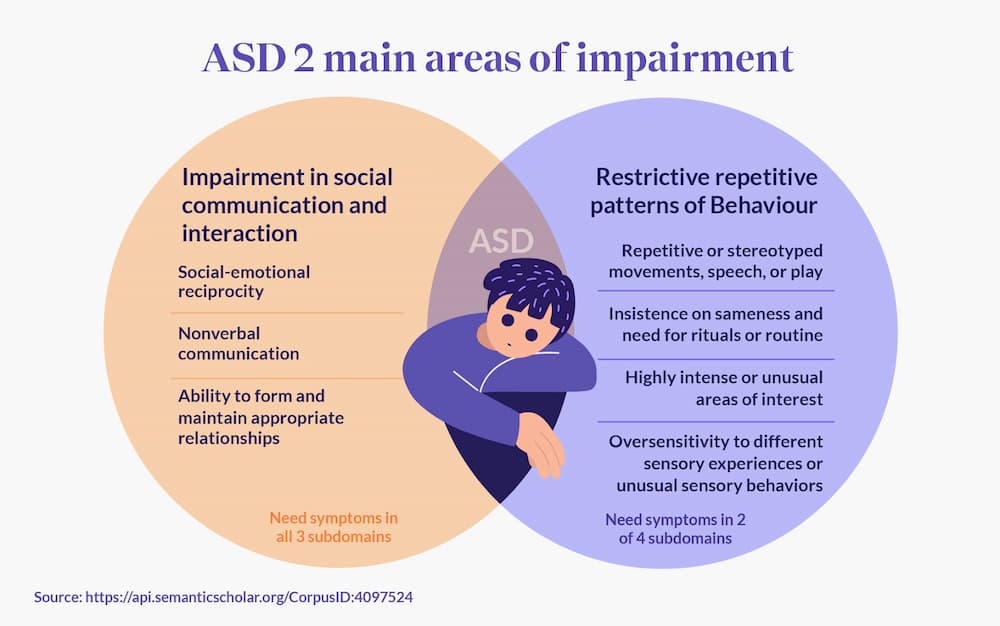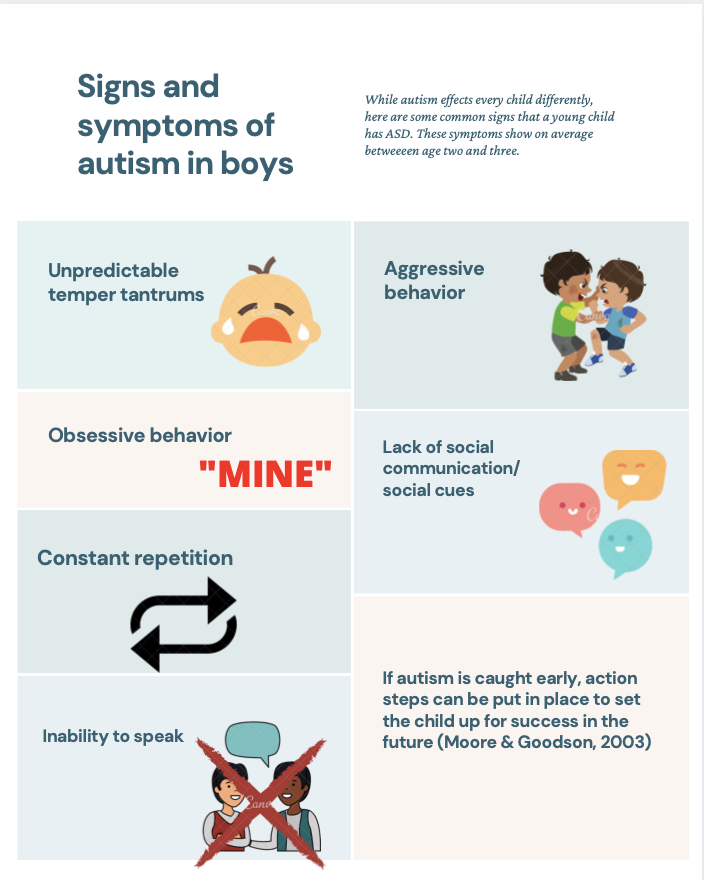Simple steps Autism Behavioral Therapy techniques ease transitions
Secret Symptoms And Signs to Recognize in People With Behavioral Autism
When you experience a person with behavioral autism, recognizing key indicators and symptoms is essential. In addition, sensory sensitivities can lead to frustrating experiences.
Obstacles in Social Interactions
When you engage with a person on the autism spectrum, you could discover they have a hard time with social cues and interaction. These challenges can make social interactions feel frustrating for them. You may see them staying clear of eye contact or standing too close or also away throughout conversations, which can create misconceptions. They might not choose up on body movement or faces, making it harder for them to evaluate exactly how others are feeling.
When they do engage, they could speak about their interests in wonderful information without seeing if you're interested. Understanding these obstacles can help you come close to interactions with empathy and persistence, cultivating an extra comfortable setting for both of you.
Difficulty With Verbal and Non-Verbal Communication

Acknowledging these indications is essential, as it helps you better support and involve with individuals on the autism spectrum. By comprehending their interaction difficulties, you can foster extra purposeful links and give a more helpful setting.
Repetitive Habits and Regimens
Communication difficulties commonly come with various other indications of autism, such as recurring behaviors and a strong choice for regimens. You may see that people with autism commonly participate in particular, repetitive activities, like hand-flapping, shaking, or duplicating expressions. These habits can offer convenience and a sense of control in a typically frustrating world.
Routines are similarly crucial; several people flourish when they follow a structured schedule. You might find that modifications to these routines can cause significant distress. For instance, if they have a day-to-day routine of consuming morning meal at a certain time or complying with a specific route to school, any type of disturbance can trigger anxiety.
Recognizing these patterns helps you understand their behavior and offer support. By accommodating their need for routine and enabling repetitive actions, you can develop a much more comfortable setting that relieves their obstacles.
Sensory Level Of Sensitivities

Typical Sensory Triggers
Sensory sensitivities can considerably influence life for people with autism, as certain stimuli often set off frustrating reactions. Common sensory triggers consist of loud noises, intense lights, and strong scents. You might observe that unexpected audios, like sirens or alarms, cause anxiousness or distress. Similarly, fluorescent lights in stores can feel awkward and harsh. Textures can likewise play a considerable role; rough fabrics or certain food appearances might be intolerable for you. Furthermore, crowded locations can overwhelm your senses, making it hard to concentrate or loosen up. Recognizing these triggers can aid you handle your environment better. By knowing what impacts you, you can take steps to minimize discomfort and enhance your everyday experiences.
Behavior Actions Clarified
Understanding your behavior reactions to sensory sensitivities is crucial, as they frequently disclose just how you engage with the globe. You could discover that specific audios, lights, or appearances bewilder you, bring about stress and anxiety or discomfort. When confronted with these stimuli, you may withdraw, cover your ears, and even respond boldy. These actions aren't simply peculiarities; they're your method of dealing with overstimulation. You might also discover on your own seeking particular sensory experiences, like deep stress or silent settings, to aid ground yourself. Identifying these patterns assists you recognize your needs better and can lead exactly how you communicate them to others. By acknowledging your sensory sensitivities, you can function in the direction of developing an environment that feels a lot more comfy and workable for you.
Coping Techniques Introduction
Recognizing your sensory level of sensitivities is just the first step; now it's time to check out coping strategies that can help you manage those experiences effectively. Beginning by developing a sensory toolkit customized to your needs. Developing a structured regimen can additionally provide predictability, lowering anxiety around sensory overload.
Restricted Interests and Emphasis
While many people establish a vast array of interests, those with autism usually show limited my latest blog post interests and an extreme focus on specific subjects. You might notice that a person with autism can invest hours diving right into their preferred subject, whether it's a certain sort of train, a particular film, or a clinical principle. This intense emphasis isn't just a leisure activity; it can end up being a central component of their identification and social interactions.
You may discover that discussions focus on these interests, and they might have a hard time to involve in broader next topics. For them, these focused passions supply convenience and a feeling of proficiency. While it's essential to motivate exploration of new subjects, appreciating their passions is just as vital. By understanding and recognizing these limited interests, you can promote an encouraging setting where they feel valued and recognized, enabling more purposeful connections and communications.
Emotional Policy Problems
Individuals with autism often encounter difficulties in psychological guideline, which can be affected by their extreme emphasis on particular interests. You could notice that when an individual is deeply taken part in a favored task, they can experience solid emotions, whether exhilaration or irritation. This intensity often makes it hard for them to change equipments or handle their sensations when points do not go as planned.

Variability in Developmental Landmarks
When it comes to developing milestones, you'll see that individuals with autism usually reveal a broad range of variability. You may see a kid excel in language skills however battle with social communications.
It's vital to acknowledge that each individual's journey is unique. Observing these patterns can assist you understand their toughness and needs much better.
Frequently Asked Concerns
Just How Is Autism Identified in Kid and Grownups?
To identify autism in adults and youngsters, professionals examine actions, interaction skills, and social interactions. If a specific fulfills the requirements for autism range disorder., they frequently use standard tests, interviews, and monitorings to determine.
Are There Various Kinds of Autism Spectrum Disorders?
Yes, there are various types of autism spectrum problems, consisting of Asperger's disorder and prevalent developing disorder-not or else specified. Each type varies in extent and attributes, so recognizing these differences can aid you far better support people with autism.
What Therapies Are Effective for Individuals With Autism?
When considering efficient treatments for people with autism, you'll locate choices like Applied Habits Analysis, speech therapy, and occupational treatment. Each strategy can help enhance interaction, social abilities, and daily operating tailored to specific demands.
Can Individuals With Autism Lead Independent Lives?
Yes, people with autism can lead independent lives. With the best assistance, abilities training, and resources, you can aid them develop self-sufficiency, take care look at here of daily jobs, and grow in various atmospheres, promoting their independence.
Just How Can Households Assistance Loved Ones With Autism?
You can support your loved ones with autism by creating a structured atmosphere, motivating their interests, practicing persistence, fostering communication, and promoting social abilities. Celebrate their success, regardless of how little, and build a supportive neighborhood.
Although lots of individuals on the autism spectrum can use and understand language, they commonly deal with substantial difficulties with both non-verbal and spoken communication. Recognizing these signs is necessary, as it aids you better assistance and involve with individuals on the autism spectrum. You might discover that people with autism frequently engage in specific, repeated actions, like hand-flapping, rocking, or repeating expressions.Sensory sensitivities can substantially influence day-to-day life for people with autism, as certain stimulations typically cause overwhelming responses.When it comes to developmental landmarks, you'll see that people with autism typically reveal a large variety of variability.